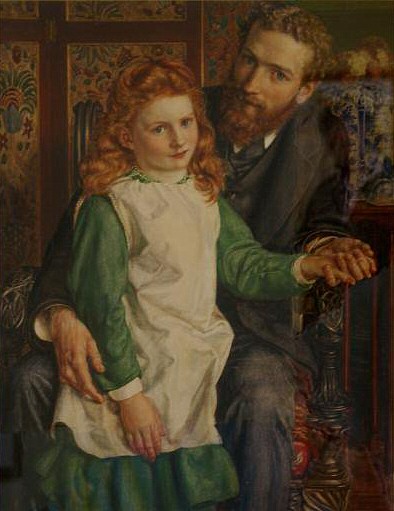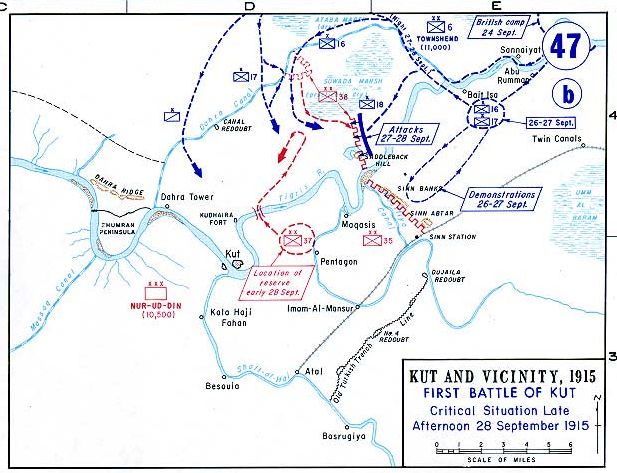|
Gerard Leachman
Lieutenant-Colonel Gerard Evelyn Leachman, CIE, DSO (27 July 1880, Petersfield, Hampshire – 12 August 1920, Iraq) was an English soldier and intelligence officer who travelled extensively in Arabia. Career Leachman was commissioned a second lieutenant in the Royal Sussex Regiment on 20 January 1900, and the following month left with his battalion for service in South Africa during the Second Boer War. He served there until the end of the war, in June 1902, and left Cape Town in the SS ''Bavarian'' in August, returning to Southampton the following month. He later served in India, but spent most of his career as a political officer in Mesopotamia, where he was instrumental in pacifying warring tribes to bring stability to the new country. Leachman also made various expeditions further south into Arabia, where he contacted Ibn Sa'ud on behalf of the British government. He travelled as a naturalist of the Royal Geographical Society, but was in fact a British agent. With his dark ... [...More Info...] [...Related Items...] OR: [Wikipedia] [Google] [Baidu] |
Indian Military Historical Society
Indian Military Historical Society (IMHS). is an organisation and learned society, which is based primarily in the United Kingdom but with a wide membership extending to the British Commonwealth and several other countries around the world. The society closed in December 2020, back issues of 'Durbar' their journal are now held by the UK-based Military History Society (behind a paywall). and details via: Background and Officers The IMHS was founded in 1983 to bring together all those people who were enthusiasts, amateurs as well as professionals, research scholars, military historians etc., who had an interest in the military history of the Indian Subcontinent, especially the old British Indian Army prior to 1947, although later studies/interest were also not discouraged. The Society's principal officers are: ''President'': Field-Marshal Sir John Chapple; ''Vice-President'': Rana Chhina Squadron Leader Rana Tej Pratap Singh Chhina, MBE (born 1960) is a writer, a military his ... [...More Info...] [...Related Items...] OR: [Wikipedia] [Google] [Baidu] |
Fahad Bey Ibn Haddal
Fahd ( ar, فهد, “leopard“ or “cheetah”), also transliterated Fahed or Fahad, can refer to: People Given name Fahad *Fahad Ali (born 1987), Indian television actor *Fahad Babar (born 1992), Pakistani born American cricketer *Fahad Al-Bishi (born 1965), Saudi football player * Fahad Belal Al-Salik (born 1991), Saudi basketball player * Fahad Albutairi (born 1985), Saudi stand-up comedian * Fahad Ensour (born 1934), Jordanian politician *Fahad Fazil, Indian actor *Fahad Mustafa (born 1983), Pakistani actor * Fahad Shah, Kashmiri journalist * Fahad Usman (born 1976), UAE cricketer *Yusuf Salman Yusuf (1901–1949), better known by his nom de guerre Fahad, Iraqi communist leader Fahd *Fahd of Saudi Arabia (1921–2005), king of Saudi Arabia, 1982–2005 * Fahd bin Abdul Rahman Balghunaim (born 1952), Saudi engineer * Fahd Ballan (1933–1997), popular Syrian Druze singer * Fahd Jaradat (1930–2015), Jordanian soldier and politician * Fahd Jassem al-Freij (born 1950), ... [...More Info...] [...Related Items...] OR: [Wikipedia] [Google] [Baidu] |
Gertrude Bell
Gertrude Margaret Lowthian Bell, CBE (14 July 1868 – 12 July 1926) was an English writer, traveller, political officer, administrator, and archaeologist. She spent much of her life exploring and mapping the Middle East, and became highly influential to British imperial policy-making as an Arabist due to her knowledge and contacts built up through extensive travels. During her lifetime, she was highly esteemed and trusted by British officials such as High Commissioner for Mesopotamia Percy Cox, giving her great influence. She participated in both the 1919 Paris Peace Conference (briefly) and the 1921 Cairo Conference, which helped decide the territorial boundaries and governments of the post-War Middle East as part of the partition of the Ottoman Empire. Bell believed that the momentum of Arab nationalism was unstoppable, and that the British government should ally with nationalists rather than stand against them. Along with T. E. Lawrence, she advocated for independe ... [...More Info...] [...Related Items...] OR: [Wikipedia] [Google] [Baidu] |
Ottomans
The Ottoman Turks ( tr, Osmanlı Türkleri), were the Turkic founding and sociopolitically the most dominant ethnic group of the Ottoman Empire ( 1299/1302–1922). Reliable information about the early history of Ottoman Turks remains scarce, but they take their Turkish name, ''Osmanlı'' ("Osman" became altered in some European languages as "Ottoman"), from the house of Osman I (reigned 1299–1326), the founder of the House of Osman, the ruling dynasty of the Ottoman Empire for its entire 624 years. Expanding from its base in Söğüt, the Ottoman principality began incorporating other Turkish-speaking Muslims and non-Turkish Christians. Crossing into Europe from the 1350s, coming to dominate the Mediterranean Sea and, in 1453, invading Constantinople (the capital city of the Byzantine Empire), the Ottoman Turks blocked all major land routes between Asia and Europe. Western Europeans had to find other ways to trade with the East. Brief history The "Ottomans" first ... [...More Info...] [...Related Items...] OR: [Wikipedia] [Google] [Baidu] |
Charles Vere Ferrers Townshend
Major General Sir Charles Vere Ferrers Townshend, (21 February 1861 – 18 May 1924) was a British soldier who during the First World War led an overreaching military campaign in Mesopotamia. His troops were besieged and captured at the Siege of Kut (December 1915 to April 1916), which was possibly the worst defeat suffered by the Allies. Controversially and in contrast to the miserable captivity endured by his men, Townshend was held on Prinkipo, where he was treated like an esteemed guest until his release in October 1918. He was briefly a Conservative Member of Parliament from 1920 to 1922. Early life Born in Great Union Street, Southwark, London, Townshend grew up in a prominent family, the son of a railway clerk, Charles Thornton Townshend (1840–1889), and Louise Graham, a Melbourne native who brought no dowry. He was the great-great-grandson of Field Marshal George Townshend, 1st Marquess Townshend. His paternal grandfather, Rev. George Osborne Townshend (1801� ... [...More Info...] [...Related Items...] OR: [Wikipedia] [Google] [Baidu] |
Siege Of Kut
The siege of Kut Al Amara (7 December 1915 – 29 April 1916), also known as the first battle of Kut, was the besieging of an 8,000 strong British Army garrison in the town of Kut, south of Baghdad, by the Ottoman Army. In 1915, its population was around 6,500. Following the surrender of the garrison on 29 April 1916, the survivors of the siege were marched to imprisonment at Aleppo, during which many died. Historian Christopher Catherwood has called the siege "the worst defeat of the Allies in World War I". Ten months later, the British Indian Army, consisting almost entirely of newly recruited troops from Western India, conquered Kut, Baghdad and other regions in between in the Fall of Baghdad. Prelude The 6th (Poona) Division of the Indian Army, under Major-General Charles Townshend, had fallen back to the town of Kut after retreating from Ctesiphon. The British Empire forces arrived at Kut around 3 December 1915. They had suffered significant losses, numbering only 11,000 ... [...More Info...] [...Related Items...] OR: [Wikipedia] [Google] [Baidu] |
British People
British people or Britons, also known colloquially as Brits, are the citizens of the United Kingdom of Great Britain and Northern Ireland, the British Overseas Territories, and the Crown dependencies.: British nationality law governs modern British citizenship and nationality, which can be acquired, for instance, by descent from British nationals. When used in a historical context, "British" or "Britons" can refer to the Ancient Britons, the indigenous inhabitants of Great Britain and Brittany, whose surviving members are the modern Welsh people, Cornish people, and Bretons. It also refers to citizens of the former British Empire, who settled in the country prior to 1973, and hold neither UK citizenship nor nationality. Though early assertions of being British date from the Late Middle Ages, the Union of the Crowns in 1603 and the creation of the Kingdom of Great Britain in 1707 triggered a sense of British national identity.. The notion of Britishness and a shared Brit ... [...More Info...] [...Related Items...] OR: [Wikipedia] [Google] [Baidu] |
Al-Ahsa Oasis
''Al-Aḥsāʾ'' ( ar, الْأَحْسَاء, ''al-ʾAhsā''), also known as al-Ḥasāʾ () or Hajar (), is a traditional oasis historical region in eastern Saudi Arabia whose name is used by the Al-Ahsa Governorate, which makes up much of that country's Eastern Province. The oasis is located about inland from the coast of the Persian Gulf. Al-Ahsa Oasis composed four main cities and 22 villages. Two of these four main cities are Al-Mubarraz and Al-Hofuf, which are two of the 15 largest cities in Saudi Arabia. With an area of around , Al-Ahsa Oasis is the largest oasis in the world. A large part of the Oasis is the Empty Quarter, also referred to as Rub' al Khali in Arabic. The Empty quarter covers almost three quarters of the land in the oasis whereas the residential areas constitute to 18% of the area of the oasis. There are more than 2.5 million palm trees including date palms in the oasis, which is fed from a huge underground aquifer and irrigated by the flow of more ... [...More Info...] [...Related Items...] OR: [Wikipedia] [Google] [Baidu] |
Riyadh
Riyadh (, ar, الرياض, 'ar-Riyāḍ, lit.: 'The Gardens' Najdi pronunciation: ), formerly known as Hajr al-Yamamah, is the capital and largest city of Saudi Arabia. It is also the capital of the Riyadh Province and the centre of the Riyadh Governorate. It is the largest city on the Arabian Peninsula, and is situated in the center of the an-Nafud desert, on the eastern part of the Najd plateau. The city sits at an average of above sea level, and receives around 5 million tourists each year, making it the forty-ninth most visited city in the world and the 6th in the Middle East. Riyadh had a population of 7.6 million people in 2019, making it the most-populous city in Saudi Arabia, 3rd most populous in the Middle East, and 38th most populous in Asia. The first mentioning of the city by the name ''Riyadh'' was in 1590, by an early Arab chronicler. In 1737, Deham Ibn Dawwas, who was from the neighboring Manfuha, settled in and took control of the city. Deham built a ... [...More Info...] [...Related Items...] OR: [Wikipedia] [Google] [Baidu] |
Rub Al Khali
The Rub' al KhaliOther standardized transliterations include: / . The ' is the assimilated Arabic definite article, ', which can also be transliterated as '. (; ar, ٱلرُّبْع ٱلْخَالِي (), the "Empty Quarter") is the sand desert (erg) encompassing most of the southern third of the Arabian Peninsula. The desert covers some (the area of long. 44°30′−56°30′E, and lat. 16°30′−23°00′N) including parts of Saudi Arabia, Oman, the United Arab Emirates, and Yemen. It is part of the larger Arabian Desert. Description Terrain The desert is long, and wide. Its surface elevation varies from in the southwest to around sea level in the northeast. The terrain is covered with sand dunes with heights up to , interspersed with gravel and gypsum plains. The sand is of a reddish-orange color due to the presence of feldspar. There are also brackish salt flats in some areas, such as the Umm al Samim area on the desert's eastern edge. Ali Al-Naimi reports ... [...More Info...] [...Related Items...] OR: [Wikipedia] [Google] [Baidu] |


_(14764460845).jpg)

.jpg)
